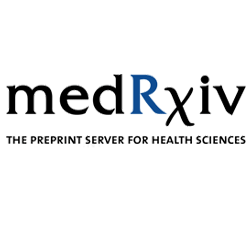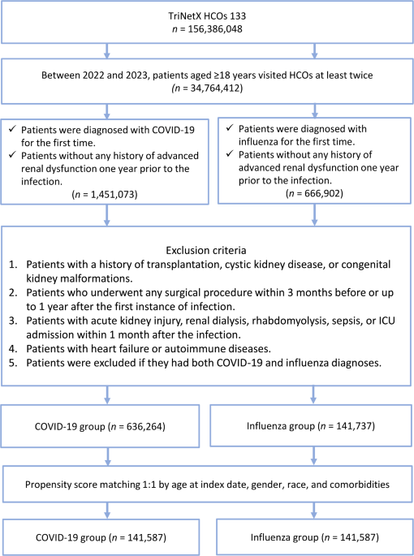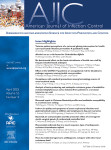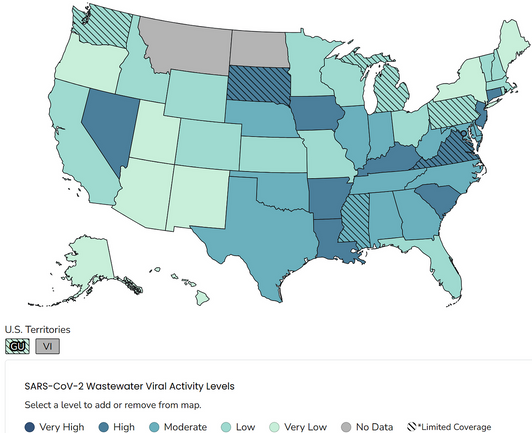■ El daño colateral de los aranceles de Trump pueden revivir uno de los miedos de la pandemia ■ El plan arancelario del presidente de EEUU tiene previsto disparar los impuestos que tiene que pagar las importaciones de abeto desde Canadá, una materia clave en la producción de papel higiénico.
https://www.huffingtonpost.es/global/el-dano-colateral-aranceles-trump-revivir-miedos-pandemia.html?int=MASTODON_WORLD
#COVID19 Reinfections are more like to lead to #LongCOVID in kids:
STUDY: Compared to the first infection, a second infection was associated with higher risk of:
- 2.08x overall PASC diagnosis
- 3.60x myocarditis
- 2.28x thrombophlebitis and thromboembolism
- 1.96x heart disease
- 1.89x acute kidney injury
- 1.59x arrhythmias
- 1.56x abnormal liver enzyme
-1.50x fatigue and malaise
-1.35x postural orthostatic tachycardia syndromes
- 1.32x cognitive functions
https://www.medrxiv.org/content/10.1101/2025.03.28.25324858v1

Nut job conspiracy theorist, #JFKjr. is spreading misinformation again by saying only sick people died from #Covid19. He claims the virus never affected healthy people. I swear they are trying to kill us. #TrumpRegimeIncompetance https://www.msn.com/en-us/news/politics/rfk-jr-makes-eyebrow-raising-comments-about-people-who-get-covid-19/vi-AA1BSeVW
COVID is NOT just the flu.
STUDY: #COVID19 patients showed 2.02x higher 12-month risks of advanced CKD (chronic kidney disease) and 3.04x higher risks of AKI (Acute Kidney Injury) compared to influenza patients.

Fuck Tim Walz.
Hes a Collaborator too far as im concerned.
"Democratic Governor Tim Walz does Trumpian Return To Office.
We all know that RTO is fossil fueled and caters to commercial real estate to get butts in seats downtown for The Economy. This is NOT a progressive move and Walz should be shamed harshly by Democrat voters in Minnesota for acting like a right-winger on telework.
'Gov. Walz announce change to state telework policy By WDIO Minnesota Governor Tim Walz announced an update to the state’s telework policy for state workers. The change would require most state agency employees to work in-person for at least 50% of their scheduled work days. This would go in effect on June 1, 2025. “This approach balances the flexibility of telework with the workplace advantages of being in office,” said Gov. Walz. “Having more state employees in the office means that collaboration can happen more quickly and state agencies can build strong organizational cultures more easily.” '
That collaboration nonsense is all bullshit and we all know it by now. Anti-telework is just collaborating with right-wing business interests."
-Chloe from Scranton Team Humans Newsletter
https://www.wdio.com/front-page/top-stories/gov-walz-announce-change-to-state-telework-policy/

@broadwaybabyto Hell, even if someone wants to wear a mask to avoid pollen (due to hayfever) that should be okay!
And it should definitely be okay to wear a mask to avoid a virus! (flu, Covid, etc)
No. Mask. Bans. Ever!
It's not "just the flu." A study of Greek healthcare professions during the 2023-2024 viral season found #COVID19 "remains the major driver of absenteeism among HCP." COVID infection accounted for 76.5% of all days missed, while influenza accounted for 9.7% of total days missed.
https://www.sciencedirect.com/science/article/abs/pii/S0196655325002846

My weekly update on #COVID19 risks in the US:
- COVID viral activity is low in the US
- COVID declined in all four regions last week
- COVID is still high in 10 states
- Mainstream media has been doing a slightly better job of covering COVID's chronic health impacts

Hello, it’s the (delayed this week -- sorry!) weekly #washingtonstate #kingcounty (that is, #seattle and environs) #COVID #COVID19 #wastewater toots.
A quick reminder that this King County respiratory disease data comes from Washington State, not the federal government.
Starting with the West Point (WSPT) sewage treatment plant: last week, the Sars-CoV2 7-day running average crept up a bit, though it is still at the low end of the scale, historically speaking. Last data is from 3/18.
WSPT is one of three King County(-ish) sewersheds in this dataset. You can find overviews, individual sewershed results, and a breakdown of variants for the state wastewater surveillance program, along with other metrics like case counts and hospitalizations for Covid-19 and other respiratory illnesses, at https://doh.wa.gov/data-and-statistical-reports/diseases-and-chronic-conditions/communicable-disease-surveillance-data/respiratory-illness-data-dashboard#WasteWater. If you go to the page and click "learn more" in the statewide view tab, you can find out lots of details about how these data are calculated and how to interpret them. The dashboard gets updated every Wednesday (generally). The WA Department of Health is here on the feditubes at @WADeptHealth.
The NYC Department of Health and Mental Hygiene continues to have some of the best #COVID19 messaging.
Sieht so aus, als hilft die (mehrfache) mRNA #Covid19 Impfung nicht nur gegen Covid selbst sondern verstärkt auch das angeborene Immunsystem, was eine generelle verstärkte Immunabwehr auch gegen andere Erreger zur Folge haben könnte. Mega spannender Artikel. Wow!
https://nachrichten.idw-online.de/2025/03/26/mrna-coronaimpfung-trainiert-das-langzeitgedaechtnis-des-immunsystems

Relevant other audiences:
Anticapitalists who are told they're naive myopic immature.
Covid realists who are told they are anxious.
Climate realists who are told they are cynics.
Anti-genocide activists.
& the other hashtags below.
so uh... #PlusLife users in the US... how are you planning on getting test kits now that they can no longer be shipped to us, thanks to the ghouls in power?
At least some public health agencies still care. From the official account of the NYC Department of Health and Mental Hygiene:
OTD in 2020, Reuters reported that #GOP President Donald #Trump had slashed the CDC staff inside China in 2018; two years later the #COVID19 #pandemic appeared and the US was unprepared https://toilet-guru.com/trump/?s=mb #PublicHealth #failure

OTD in 2020, Reuters reported that #GOP President Donald #Trump had slashed the CDC staff inside China in 2018; two years later the #COVID19 #pandemic appeared and the US was unprepared https://toilet-guru.com/blog/63.html?s=mb #PublicHealth #failure
A powerful personal story of navigating workplace safety, social isolation, and the ongoing reality of COVID. Luca shares the struggle of being "the last mask on" — reminding us why it's crucial to stay informed, connected, and COVID-conscious.
Read Luca's full experience here: https://whn.global/the-last-mask-on-how-sars-cov-2-changed-my-life-without-even-touching-me/
Robert F. Kennedy Jr promised during his confirmation hearing to prioritize Long #Covid19 research. Guess what? The Trump administration is shuttering HHS’ #LongCovid office. Guess we've solved that problem. The 5 to 10% of Americans who suffer from LC (and the millions who'll succumb to it in the years ahead) are on their own.

